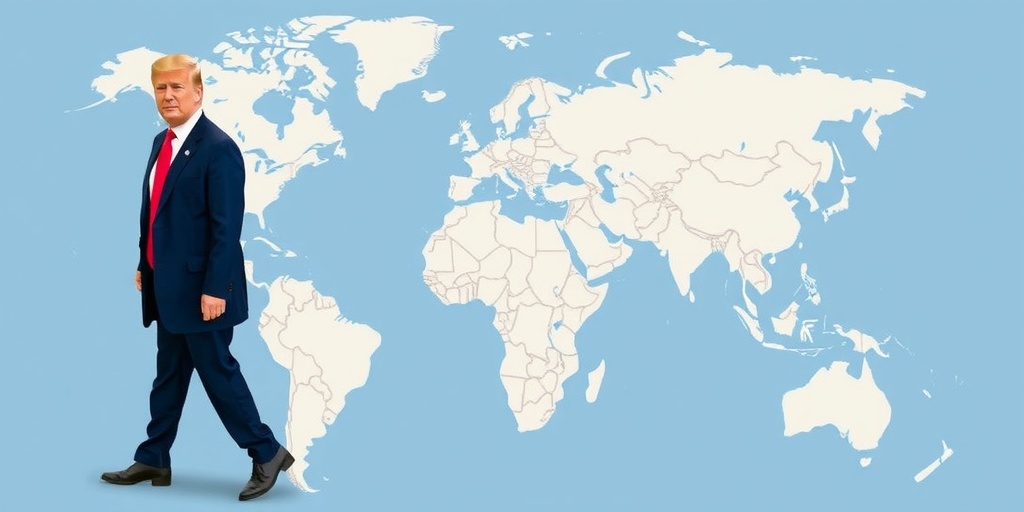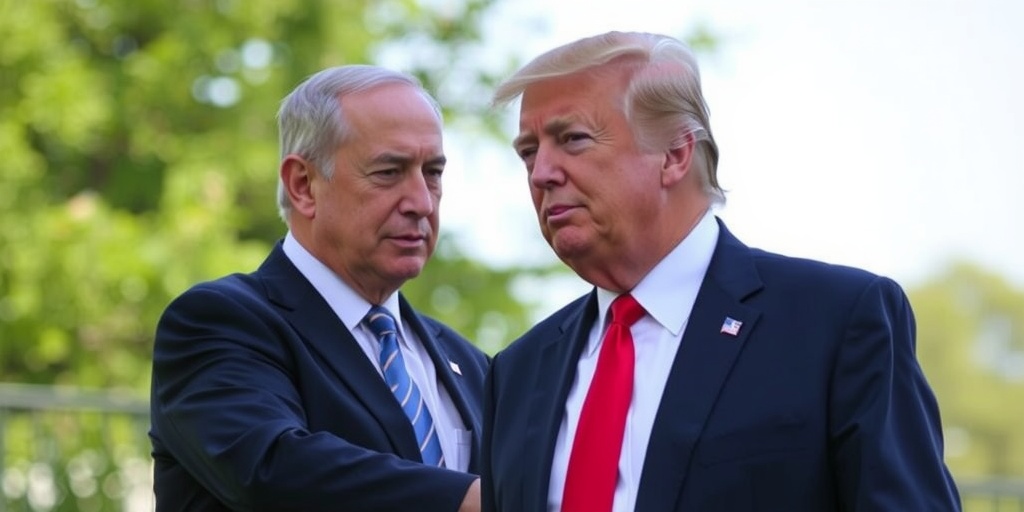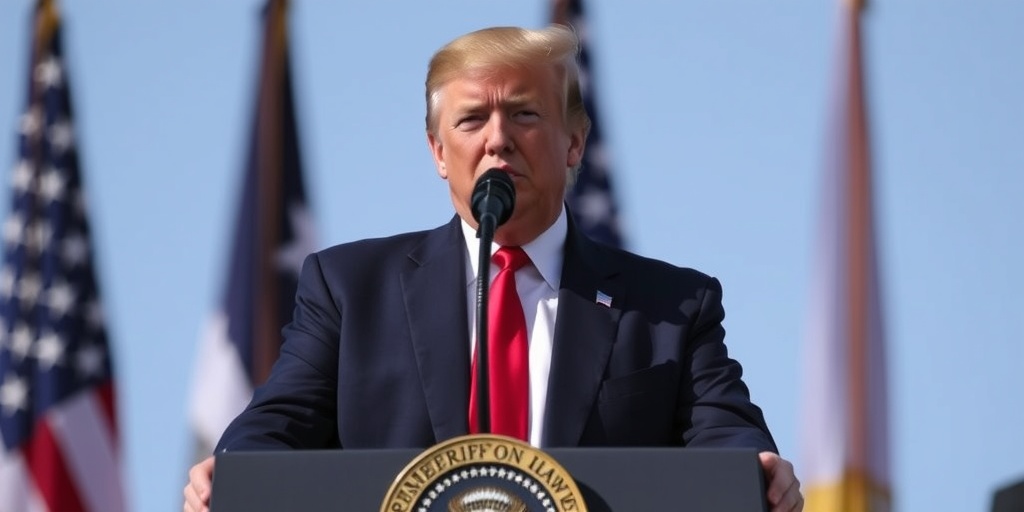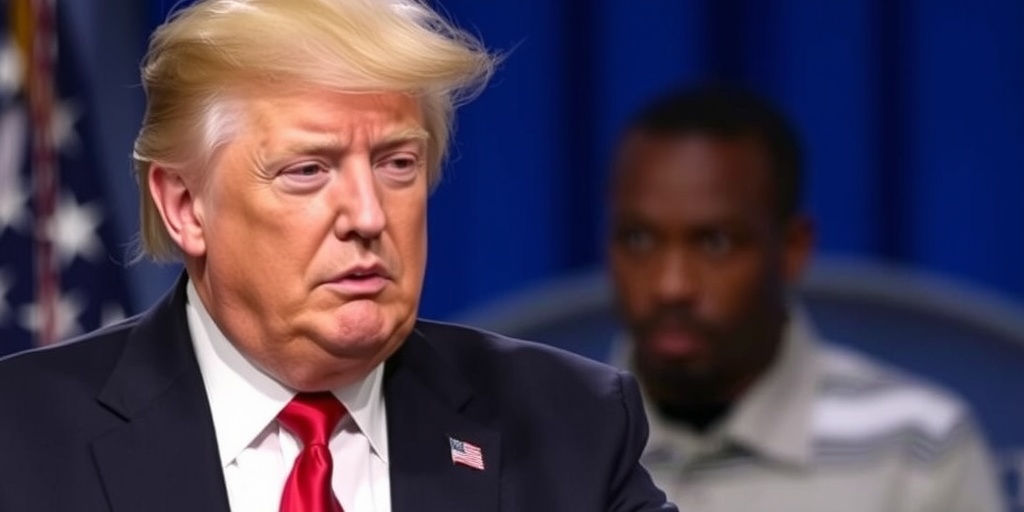Now Reading: Trump Appointees Terminate 2,000 USAID Employees, Place Others on Leave Worldwide
-
01
Trump Appointees Terminate 2,000 USAID Employees, Place Others on Leave Worldwide
Trump Appointees Terminate 2,000 USAID Employees, Place Others on Leave Worldwide

Title: Major Layoffs at U.S. Agency for International Development Amid Controversial Reforms
In a surprising move announced by appointees of the Trump administration, the U.S. Agency for International Development (U.S.A.I.D.) is set to undergo significant personnel reductions. On Sunday afternoon, an email circulated among employees revealed plans to terminate 2,000 workers based in the United States and place thousands of foreign service officers and other direct hires around the globe on paid leave starting that same night. This action appears to be a continuation of the administration’s broader strategy to curtail U.S. foreign aid efforts.
According to the email obtained by The New York Times, the exceptions to the mass layoffs will be personnel involved in “mission-critical programs” and “core leadership," as well as employees engaged in “specially designated programs.” The process being utilized for reducing personnel in the agency is officially termed a “reduction in force.” This drastic action comes as part of an extensive effort by the Trump administration to freeze almost all U.S. foreign aid initiatives.
The fallout from this decision is significant. Just days prior, a federal judge ruled that the administration was permitted to follow through with plans to lay off or place many U.S.A.I.D. employees on paid leave. This ruling also allows for the closure of operations overseas, compelling numerous employees stationed abroad to return to the United States. There are growing concerns among these overseas employees regarding their job security, with many fearing they will be dismissed shortly after their return.
The judge presiding over the case, Carl J. Nichols of the Federal District Court in Washington, had been reviewing a lawsuit aimed at preventing officials from enacting the layoffs and forcing overseas employees back home. The outcome of this legal battle reflects the complexities and contentious nature surrounding federal employment practices within agencies like U.S.A.I.D.
Since the end of January, Pete Marocco, who had previously stirred controversy as a political appointee within the State Department during the first Trump administration, has been at the forefront of dismantling U.S.A.I.D. working closely with notable tech billionaire and advisor to President Trump, Elon Musk. Musk has stirred debates on social media with his views on U.S.A.I.D. operations, underscoring the contentious climate surrounding foreign aid initiatives.
Earlier this month, Secretary of State Marco Rubio was appointed as the acting administrator of U.S.A.I.D., with Marocco named as his deputy. Shortly thereafter, the agency sent out communications detailing that employees opting for a “voluntary” return from overseas would have their travel expenses covered by the agency—a measure aimed at alleviating some of the burdens associated with the abrupt changes.
In addition to the impending layoffs, the agency had already terminated around 400 contract employees engaged in urgent humanitarian assistance programs just the week before. Such actions have further fueled the belief among employees that Rubio does not support ongoing humanitarian endeavors, despite his previous assurances.
It is worth recalling that just last month, Rubio stated his commitment to ensuring the continuation of "lifesaving humanitarian assistance" programs. However, under the current circumstances, many of these programs have come to a standstill. Reports indicate that the agency’s payment system is malfunctioning, preventing partner organizations from accessing necessary funds to carry out their missions.
Rubio has indicated that some foreign aid initiatives may persist following a 90-day review process. However, both he and Marocco have failed to clarify how this process would unfold. The ambiguity surrounding the future of foreign aid under their leadership leaves much to be desired in terms of transparency and accountability.
As these developments unfold, the implications for U.S. foreign policy and international humanitarian efforts remain unclear. The significant downsizing and operational changes at the U.S.A.I.D. could have lasting effects on domestic and international landscapes, impacting the delivery of crucial aid at a time when many regions rely heavily on U.S. support. The agency’s current trajectory raises pressing questions about the future of U.S. foreign aid and the commitment to global humanitarian needs amid evolving political priorities.
Stay Informed With the Latest & Most Important News
Previous Post
Next Post
-
 01New technology breakthrough has everyone talking right now
01New technology breakthrough has everyone talking right now -
 02Unbelievable life hack everyone needs to try today
02Unbelievable life hack everyone needs to try today -
 03Fascinating discovery found buried deep beneath the ocean
03Fascinating discovery found buried deep beneath the ocean -
 04Man invents genius device that solves everyday problems
04Man invents genius device that solves everyday problems -
 05Shocking discovery that changes what we know forever
05Shocking discovery that changes what we know forever -
 06Internet goes wild over celebrity’s unexpected fashion choice
06Internet goes wild over celebrity’s unexpected fashion choice -
 07Rare animal sighting stuns scientists and wildlife lovers
07Rare animal sighting stuns scientists and wildlife lovers




















